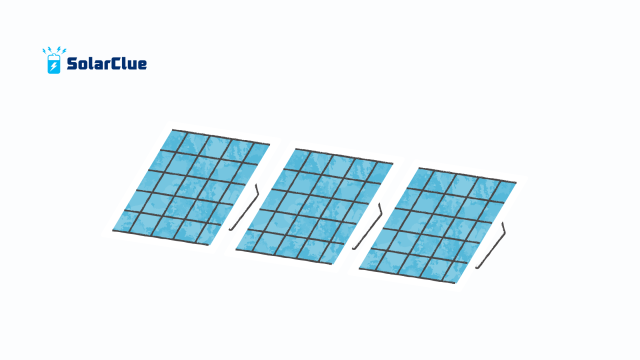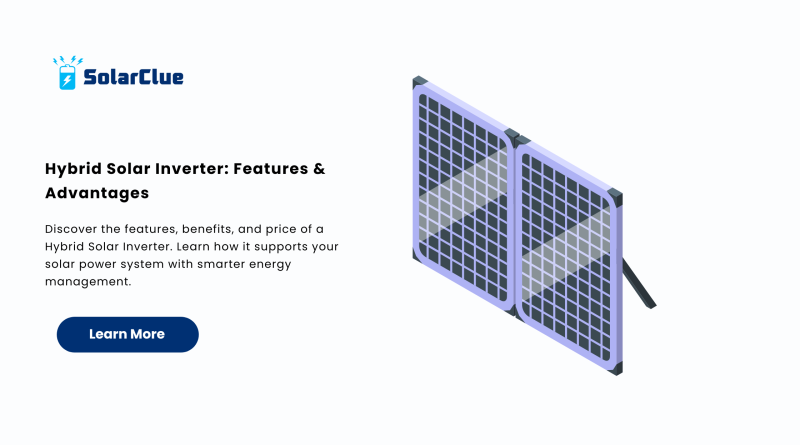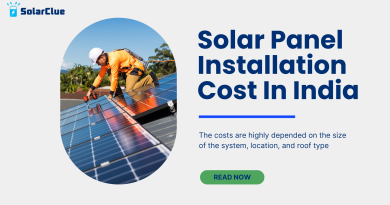Hybrid Solar Inverter: Features & Advantages
Hybrid Solar Inverter: Features & Advantages: A Hybrid Solar Inverter is a next-generation power management device that intelligently integrates solar energy, battery backup, and grid power to deliver an uninterrupted electricity supply. Unlike traditional inverters, this system optimizes energy use by smartly switching between different sources.
Table of Contents
- 1 How Does a Hybrid Solar Inverter Work?
- 2 Key Features of Hybrid Solar Inverters
- 3 Advantages of Using a Hybrid Solar Inverter
- 4 Hybrid Solar Inverter vs Traditional Inverter
- 5 Applications of Hybrid Solar Inverters
- 6 Things to Consider Before Buying
- 7 Top Brands Offering Hybrid Solar Inverters in India
- 8 Long-Term Benefits of Hybrid Solar Inverter
- 9 Best Time to Invest in Hybrid Solar Inverter
- 10 Government Incentives & Subsidies
- 11 Maintenance Tips for Hybrid Solar Inverters
- 12 Future of Hybrid Solar Inverters
- 13 Final Thoughts
- 14 FAQs
How Does a Hybrid Solar Inverter Work?
At the core, a Hybrid Solar Inverter functions as a dynamic bridge. It converts DC from your solar panels into AC, suitable for home use, and stores excess power in batteries. When solar energy is unavailable, it automatically draws from batteries or the grid.
Key Features of Hybrid Solar Inverters
1. Intelligent Power Switching
This feature ensures automatic switching between solar power, battery, and grid depending on demand and availability.
2. Battery Storage Compatibility
It works seamlessly with lithium-ion, lead-acid, and other battery types to ensure long-term backup.
3. Real-Time Monitoring
Modern models offer smartphone apps for monitoring power generation, usage, and battery status in real-time.
4. High Efficiency
Efficiency ratings often exceed 95%, making Hybrid Solar Inverters a smart investment for any solar power system.
5. Smart Grid Support
Some models can even feed excess solar electricity back to the grid, reducing your monthly bills.
Advantages of Using a Hybrid Solar Inverter
1. Energy Independence
Reduce reliance on the utility grid and enjoy uninterrupted power supply, especially during outages.
2. Cost Savings
Though the Hybrid Solar Inverter price is higher upfront, long-term savings in utility bills and battery optimization make it cost-effective.
3. Environmentally Friendly
By maximizing solar power usage, it reduces carbon footprint and helps support a cleaner environment.
4. Seamless Backup Power
Enjoy seamless power transitions during load shedding or power failure.
5. Flexible Scalability
Can be scaled easily by adding more solar panels or batteries as per growing energy needs.
Hybrid Solar Inverter vs Traditional Inverter
| Feature | Traditional Inverter | Hybrid Solar Inverter |
|---|---|---|
| Power Source | Grid/Battery | Solar/Grid/Battery |
| Backup | Limited | Extended with solar power |
| Efficiency | Moderate | High Efficiency |
| Investment | Lower Initial Cost | Higher but Cost-Effective Long-Term |
Applications of Hybrid Solar Inverters
- Residential Homes
- Commercial Buildings
- Educational Institutions
- Rural Electrification Projects
- Off-grid and Remote Areas
Things to Consider Before Buying
1. Inverter Capacity
Choose an inverter with sufficient capacity to match your household or business energy requirements.
2. Battery Type
Ensure the inverter is compatible with the type and size of battery you plan to use.
3. Hybrid Solar Inverter Price
Prices vary based on brand, features, and capacity. Entry-level models start around ₹20,000, while premium systems can go up to ₹1,00,000 or more.
4. Warranty & Support
Look for a warranty of at least 5 years and ensure service availability in your region.
5. Certification & Compliance
Ensure the inverter meets industry standards like IEC, MNRE approval, and BIS certification.
Top Brands Offering Hybrid Solar Inverters in India

- Luminous
- Microtek
- Growatt
- Livguard
- V-Guard
- Sukam
Long-Term Benefits of Hybrid Solar Inverter
Installing a Hybrid Solar Inverter ensures reduced electricity bills, increased energy independence, and a solid step towards sustainable living.
Best Time to Invest in Hybrid Solar Inverter
With rising energy costs and frequent power cuts, there has never been a better time to invest in solar energy solutions. Government subsidies and incentives make this an ideal moment.
Government Incentives & Subsidies
Many Indian states offer subsidies up to 40% for solar power system installations. Make sure to check the latest policies on SolarClue.
Maintenance Tips for Hybrid Solar Inverters
- Keep the unit clean and ventilated
- Regularly check wiring and battery status
- Update firmware if the manufacturer provides updates
Future of Hybrid Solar Inverters
With the integration of AI and IoT, future models will become even smarter, offering predictive analytics and automated grid interactions.
Final Thoughts
A Hybrid Solar Inverter is not just a device; it’s a gateway to reliable, clean, and cost-effective energy. With its robust features and remarkable benefits, it’s an investment worth making for any home or business aiming to utilize solar power smartly.
Explore more on solar inverters and advanced solar power systems at our expert knowledge hub — blog.solarclue.com.
Ready to make your home smarter and more energy-efficient? Dive into top-rated products at solarclue.com today!
FAQs
1. What makes a Hybrid Solar Inverter better than a regular inverter?
A Hybrid Solar Inverter integrates solar, battery, and grid seamlessly, offering more efficient and uninterrupted power supply.
2. Does a Hybrid Solar Inverter work during power outages?
Yes, it provides seamless backup by switching to battery or solar energy during grid failures.
3. How long does a Hybrid Solar Inverter last?
Most models last between 8-15 years depending on usage and maintenance.
4. Can I use a Hybrid Solar Inverter without batteries?
Yes, some models can work in grid-tied mode without batteries, but including them maximizes benefits.
5. Are government subsidies available for Hybrid Solar Inverter installations?
Yes, various central and state-level schemes offer subsidies to reduce initial investment.



